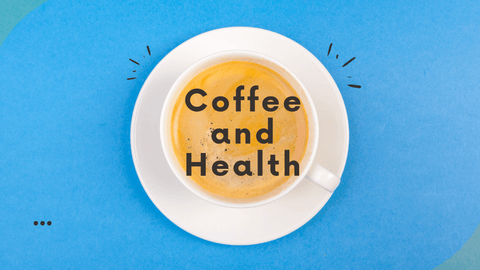Table of Contents
- Introduction to Coffee
- History of Coffee
- Health Benefits of Coffee
- Misconceptions about Coffee
- Coffee Consumption and Healthy Lifestyle Choices
- Practical Tips for Coffee Drinkers
- Conclusion
- FAQs
Introduction to Coffee
Coffee is a well-loved beverage enjoyed by millions worldwide. The ritualistic morning brew that wakes up the senses, coffee serves not just as a pick-me-up but also plays a significant role in our social and cultural practices.
History of Coffee
Coffee's story is steeped in legend and intrigue, spanning centuries and continents. From the goat herders of ancient Ethiopia who allegedly discovered its energising effects to the global commodity that it is today, coffee's journey is a fascinating tale of innovation, economics, and cultural impact.
Health Benefits of Coffee
Antioxidants in Coffee
Did you know coffee is a significant source of antioxidants? These compounds neutralise harmful free radicals in the body, thus reducing inflammation and the risk of chronic diseases.
Boosting Physical Performance
The caffeine in coffee enhances physical performance by increasing adrenaline levels. It's no surprise that a cup of coffee before a workout can lead to improved athletic performance.
Benefits to the Brain
From improving mood to boosting brain function, coffee's impact on the brain is profound. Studies suggest that regular coffee consumption may lower the risk of neurological diseases like Alzheimer's and Parkinson's.
Coffee and Liver Health
Regular coffee consumption has been linked with a lower risk of liver diseases, including cirrhosis and liver cancer. Researchers believe the antioxidants and anti-inflammatory compounds in coffee contribute to these protective effects.
Misconceptions about Coffee
Coffee and Dehydration
One common myth is that coffee causes dehydration. While caffeine can have a mild diuretic effect, the water in coffee contributes towards your daily fluid balance, negating any dehydrating effects.
Coffee and Heart Diseases
Another misconception is that coffee is bad for your heart. While excessive caffeine can increase heart rate, moderate consumption does not increase your risk of heart disease. In fact, some studies suggest it might offer some heart-healthy benefits.
Coffee and Sleep Disturbances
Some people worry that coffee leads to insomnia. While caffeine can disrupt sleep if consumed close to bedtime, enjoying your coffee earlier in the day should not significantly impact your sleep quality.
Coffee and Addiction
Is coffee addictive? This depends on your definition of addiction. While regular consumers might experience withdrawal symptoms like headaches and irritability when they miss their coffee, this is typically mild and temporary.
Coffee Consumption and Healthy Lifestyle Choices
Drinking coffee should be part of a balanced, healthy lifestyle. Remember, the benefits of coffee come from its natural compounds, so avoid adding excessive amounts of sugar or cream.
Practical Tips for Coffee Drinkers
Choosing the Right Type of Coffee
Opt for organic coffee whenever possible to avoid potential pesticide residues. Consider trying different brewing methods to find your perfect cup.
Moderate Consumption
The key to enjoying coffee's health benefits is moderation. Most research supports a daily intake of up to 3-4 cups for a healthy adult.
Conclusion
In conclusion, coffee offers numerous health benefits and is not the villain it's often made out to be. Like any food or drink, it should be enjoyed responsibly as part of a balanced diet.
FAQs
- Is coffee good for your health?
Yes, coffee offers several health benefits, including antioxidant properties and potentially reducing the risk of certain diseases. - Can drinking coffee cause dehydration?
While caffeine has a diuretic effect, the water in coffee generally balances out these effects, so it doesn't typically lead to dehydration. - Does coffee increase the risk of heart disease?
No, moderate coffee consumption does not increase the risk of heart disease. - Can I drink coffee late in the day?
Drinking coffee late in the day can disrupt your sleep, so it's best to have your last cup at least six hours before bedtime. - Is coffee addictive?
Regular coffee consumers might experience mild, temporary withdrawal symptoms, but generally, coffee isn't considered addictive in the same way drugs are.



